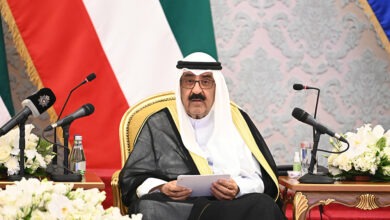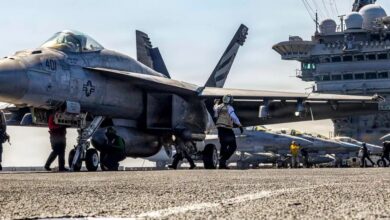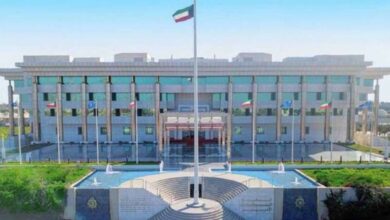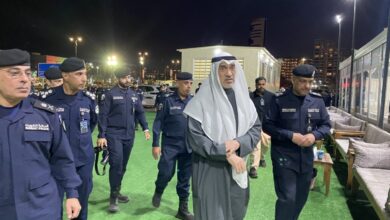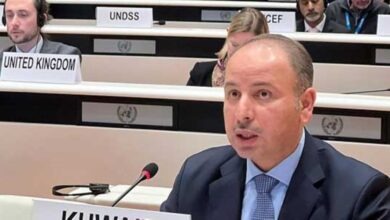Forum warns of escalating water challenges across MENA region
The speakers at the Middle East and North Africa Water Development Financing Forum in Kuwait urged the region to manage natural resources for self-sufficiency and stressed the need for a strong Middle Eastern voice in global discussions, as climate change threatens habitability.
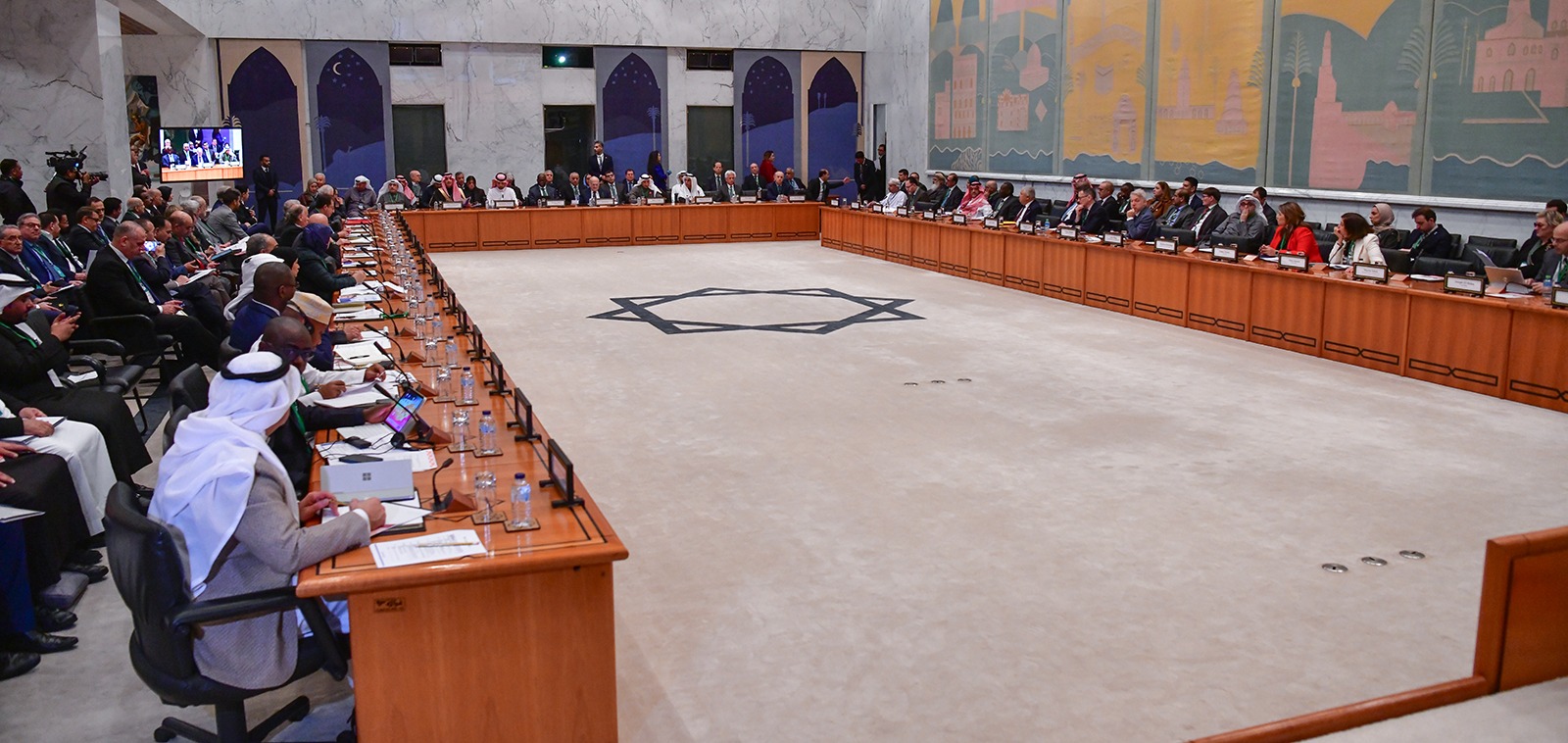
• The Middle East and North Africa, home to over 6% of the world’s population, holds less than 1% of global renewable water resources, with demand expected to double by 2050 due to climate change and population growth.
The Middle East and North Africa Water Development Financing Forum in Kuwait has raised concerns about the region’s water challenges in the coming years and decades, according to Al Jarida newspaper.
The speakers at the forum stressed the need for resource management and self-sufficiency, urging Middle Eastern countries to strengthen their global voice as climate change threatens the region’s habitability.
Prince El-Hassan bin Talal: Investing 1% of military spending could boost water resources in the Middle East
The forum featured the participation of His Royal Highness Prince El Hassan bin Talal of the Hashemite Kingdom of Jordan, Badr Al-Saeed, Director and Chairman of the Arab Fund for Economic and Social Development, Ousmane Dione, Vice President of the World Bank’s Middle East and North Africa region, along with several water and irrigation ministers from MENA countries.
Prince El-Hassan began his opening speech by stating, “While the region’s governments have taken steps towards peace and cooperation, we cannot wait for policies to resolve issues related to water, energy, and food.”
He stressed the need for governments to commit to the concept of “human dignity” by managing and developing natural resources to achieve self-sufficiency in an integrated ecosystem covering energy, water, and food.
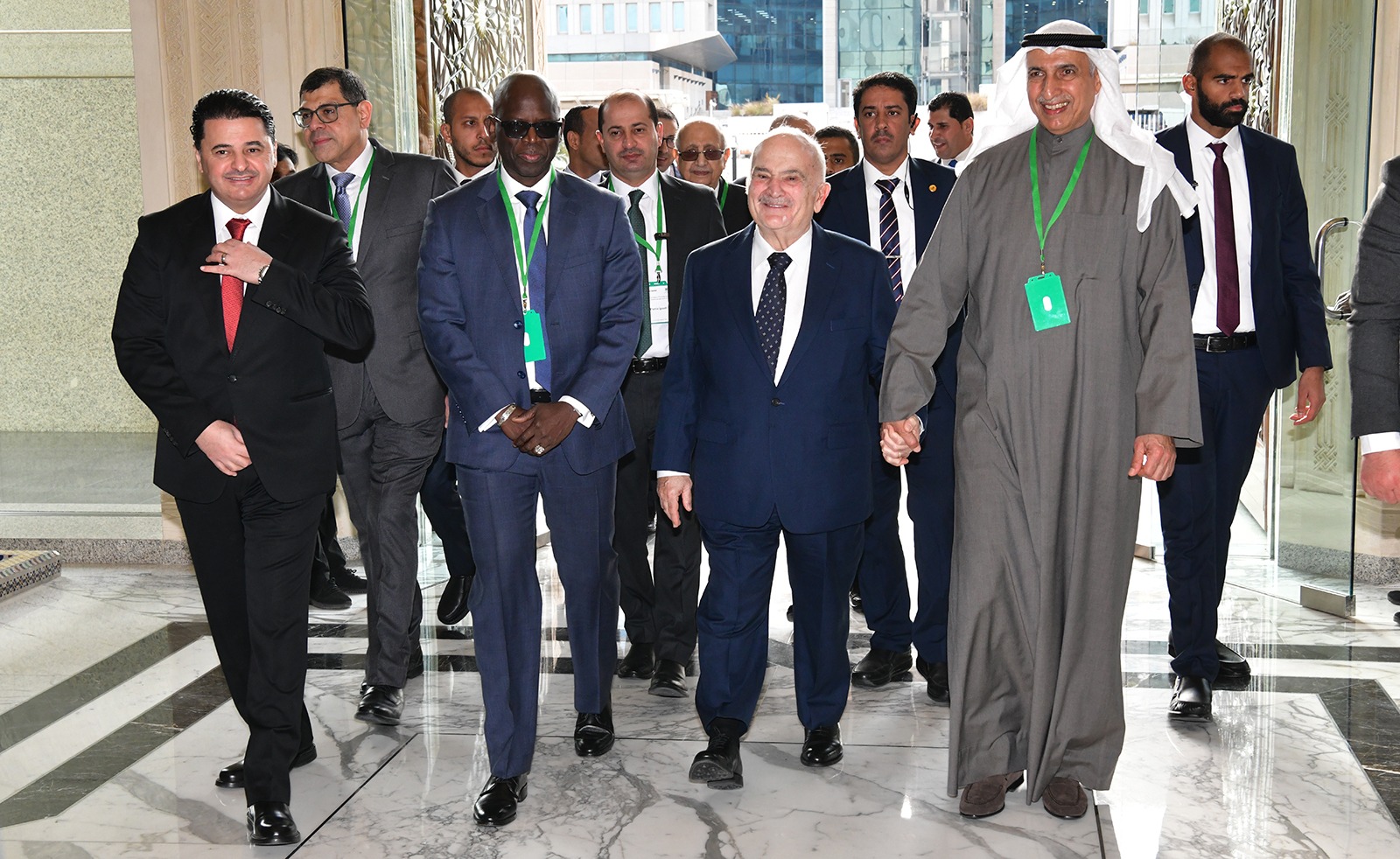
El-Hassan noted that trillions of dollars have been spent on military, war, and infrastructure projects, and investing just 1% of that could significantly boost water resources, particularly through groundwater discoveries. Studies show that Somalia’s groundwater stock is comparable to Australia’s.
He argued that most development projects fail due to the lack of a unified voice from the region in global discussions.
Fall in water resources could reduce Middle East’s GDP by upto 14% by 2050
He highlighted that financing water and sanitation projects in the West Asia region requires approximately $21 billion, noting that water loss and leakage in the region account for 20-50% of available resources. Additionally, he warned that the decline in water resources by 2050 could reduce the region’s GDP by 6-14%, contradicting the goals of sustainable development.He also pointed out that 80% of saltwater remains unprocessed in the region.
Decline in ice mass in Scandinavia could open new shipping and trade routes across the region
El-Hassan identified factors hindering water resource development, including geological divisions, political challenges, and ongoing conflicts in the region, such as those in Ukraine, Israel, Palestine, Ethiopia, Sudan, Kenya, and Uganda. He also noted that the decline in ice mass in Scandinavia could open new shipping and trade routes across the region.
El-Hassan stressed the need for effective development integration in the region to enhance water resources, pointing out that most development projects in this field remain inactive due to the lack of a strong voice from Middle Eastern countries on the global stage.
“Blue Green Initiative”
He emphasized the social and economic impact of water projects, explaining that around 300 million people in the Greater Levant region—comprising Iraq, Jordan, Syria, Lebanon, Iran, and Turkey—depend on these resources.
He called for the launch of a “Blue Green Initiative” that prioritizes water projects as part of natural resource management, aiming to achieve human dignity and environmental sustainability.
Water-scarce regions
In his speech at the opening of the forum, the Director-General and Head of the Arab Fund for Economic and Social Development, Badr Al-Saeed, highlighted the Middle East and North Africa’s water scarcity, holding less than 1% of global renewable water resources while housing over 6% of the world’s population, with demand expected to double by 2050 due to climate change and population growth.
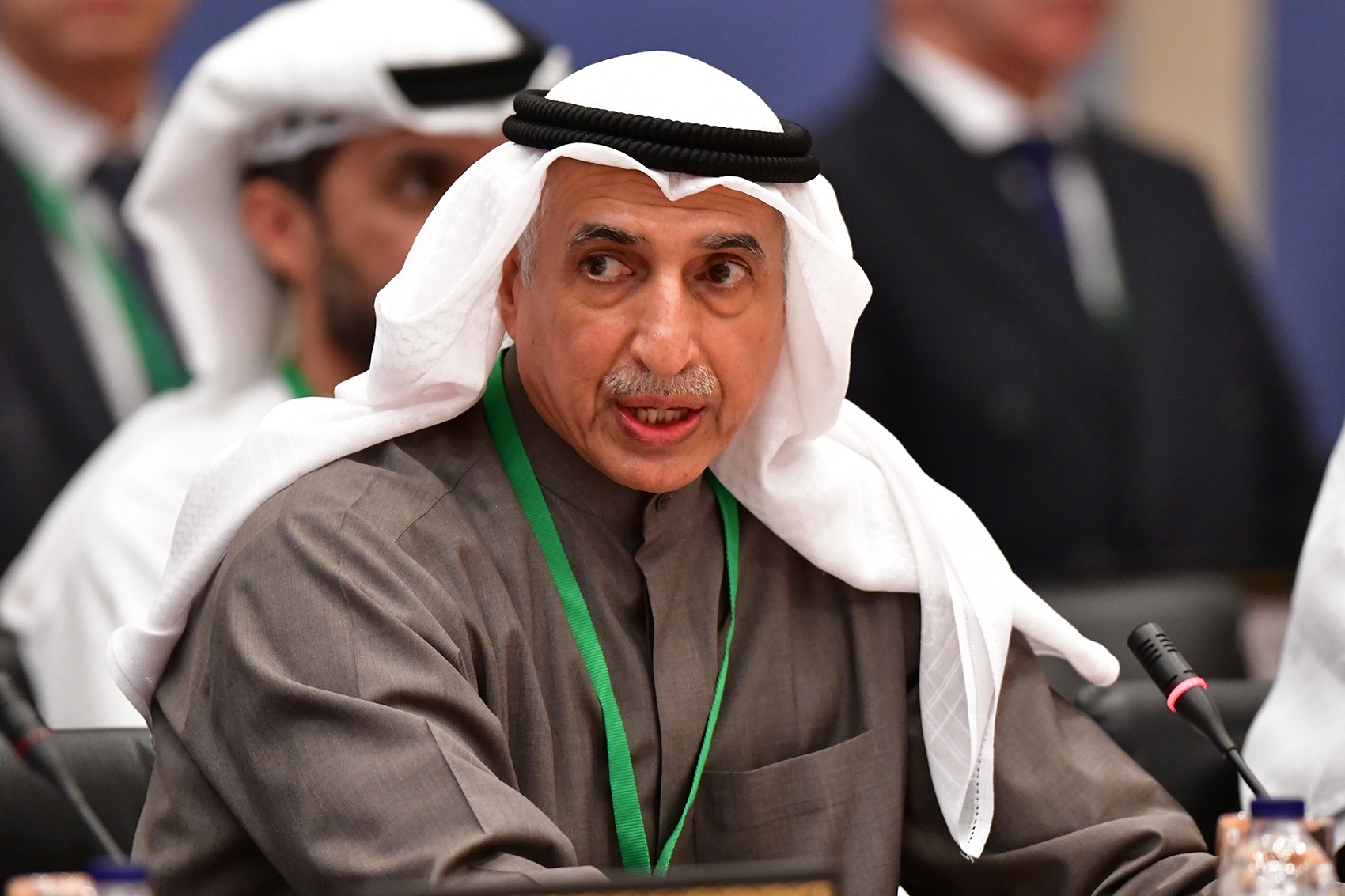
Al-Saeed said, “Although innovation provides solutions, we face great challenges, such as improving desalination technologies, reusing wastewater, and ensuring the financial sustainability of utilities.” He stressed that the forum aims to explore innovative solutions, such as public-private partnerships and the use of financing tools, to ensure equitable and sustainable access to water.
Al-Saeed: Water security involves economic and social development and human dignity
He emphasized that water security is not only a matter of resource availability but also involves economic and social development and human dignity. Through cooperation and innovation, he believes sustainable solutions to water security in the region can be achieved.
At the end of his speech, the audience was urged to seize the opportunity to discuss the challenges and opportunities that contribute to lasting change and to work together for a sustainable and prosperous future for the region.
Dion: Climate Change poses an existential threat that makes parts of the region unlivable
For his part, World Bank Vice President for the Middle East and North Africa, Ousmane Dione, said, “We are here today because the Middle East and North Africa region stands at a crossroads, one of the most water-scarce regions, where droughts and desertification have become more frequent and severe. Climate change exacerbates these pressures, posing an existential threat that may make parts of the region uninhabitable.”
He added that the history of the region reminds us that scarcity has never been inevitable. The region has turned challenges into opportunities through innovation, such as the ancient irrigation systems like the khattara in Morocco, norias in Algeria, and Aflaj in Oman. Today, GCC countries continue to transform the region using desalination technology.
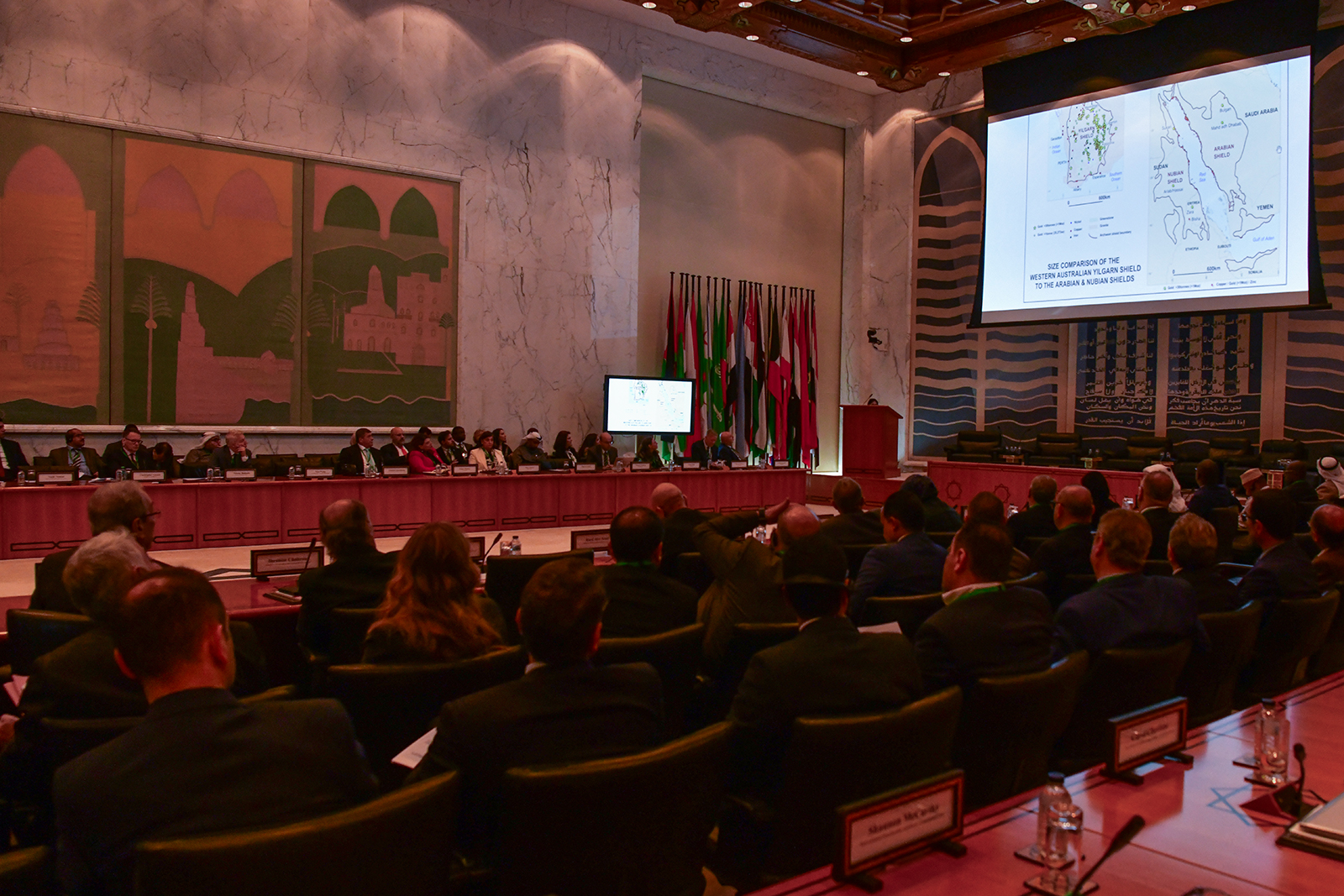
He emphasized that innovation alone isn’t enough, as climate change acts as a multiplier, destabilizing water resources. World Bank reports show that while some regions may see short-term water increases, the overall impact on GDP and livelihoods will be negative. Water must be central to our solutions. Addressing this requires rethinking water management, cross-border cooperation, and mobilizing financial and intellectual resources.
The partnership between the Arab Fund and the World Bank is key, combining local and global expertise to deliver innovative solutions through sustainable financing models. Additionally, exploring all funding options, from traditional financing to public-private partnerships, is essential.
He emphasized that water is not just a resource; it is life. Through joint action, we can ensure a prosperous and secure future for generations to come.








